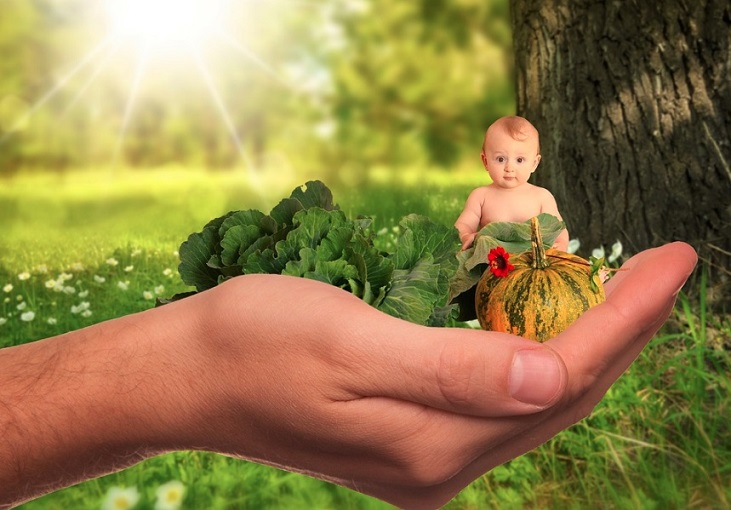Organic Baby Food: Another Healthy Alternative
Food is one of the most important things in a newborn’s life. In the first six months, babies should only feed on breast milk since it contains all the nutrients a baby needs, ensuring the good health of your little one.
From 6 month onwards, the complementary diet begins, a dilemma for parents, especially for first timers, who still may not necessarily know what’s best for their children.

This stage is one of the most important, as foods that:
- contain appropriate nutrients
- are healthy and free of microorganisms
- chemicals that may be harmful to the baby should be chosen
Now could be a great time to introduce your little one to organic food options. These are foods that are produced in soils cultivated with pure water and foods are free from herbicides, pesticides and chemical pesticides.
We know that toxins are harmful to the human body. As for a baby’s body, it is much more dangerous because their metabolism is weaker, so she needs a large contribution of nutrients, minerals and chemical-free products that strengthen her development.
Moreover, some pesticides can be passed through breast milk, causing the baby to be exposed to them as well. It’s essential that healthy food options are presented once your baby is past the breast milk feeding stage, since at this age, the immaturity of enzymatic systems and the lack of adequate metabolic pathways, makes them more susceptible to the toxic action of contaminants. As always, however, consult your pediatrician before introducing any significant changes in your baby’s diet.
So what types of foods? It depends on the age of the child and food that is appropriate for.
A 6 month old will be different from that of a 4 year old. That said, generally speaking, there are biscuits, oats, cereals, juices, fruits and vegetables.

For 6 month old babies, fruits and vegetables but that do not contain salt, sugar nor artificial preservatives.
Month 7-12 : biscuits, potatoes, plantains and egg yolk.
12 month onwards: More solid fruits can be introduced Apple and banana, vegetables and rice.
Although organic foods arguably cost more than “conventional ones,” many parents prefer to give them to their children for the benefits they bring.
My best friend, for example, who’s a vegan, started feeding her son products made organically ever since he was one year old.

Take Note of Benefits of Organic Foods:
- Beneficial organic food production prohibits the use of artificial additives such as hydrogenated fats, phosphoric acid and pesticides, which have been linked to health problems such as allergies, and lower immune systems.
- Organic foods provide more minerals and nutrients, vitamins, carbohydrates, proteins, iron, magnesium and phosphorus…and less nitrate, a toxic substance in large amounts.
- Organic products have no toxins.
- In general, they help create better defenses aka stronger immune systems overall. My friend hasn’t been sick in over 12 years. Yeah, Im jealous.
Environmentally speaking, organic production helps prevent soil erosion, improves fertility and prevents contamination.
Try this simple recipe below for starters:
MASHED CHICKEN, VEGETABLES AND RICE
Ingredients:
– 1 tomato Roma organic Field Live
– 2 organic carrots
– 1/4 organic Onion Live Field
– 1 Organic Zucchini
– 60 gr Chicken Breast
– Two cups of your favorite rice.
Procedure:
1. First, wash and disinfect the vegetables, then peel them.
2. In a pot with enough water, mix the vegetables together with the rice.
3. Since the vegetables are about to finish cooking, add the chicken and leave it in for a few more minutes until it is well cooked.
4. Drain the food and put it in a food processor or blender until you get a consistent texture. You can water as needed in case it is too thick/ not thick enough.
Eating healthy is fun, simple, and most important, good for you.
Maria writes for BebesyMadres.com. She can be reached at maria@bebesymadres.com or at facebook.com/bebesymadres.
